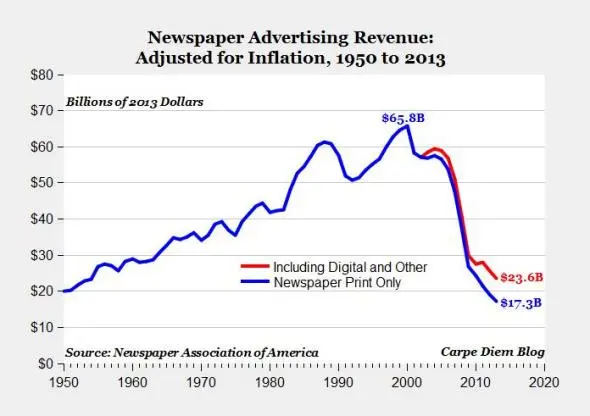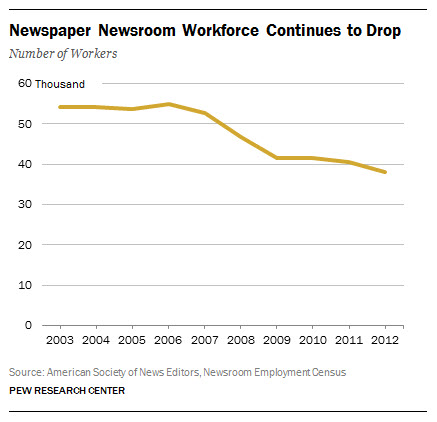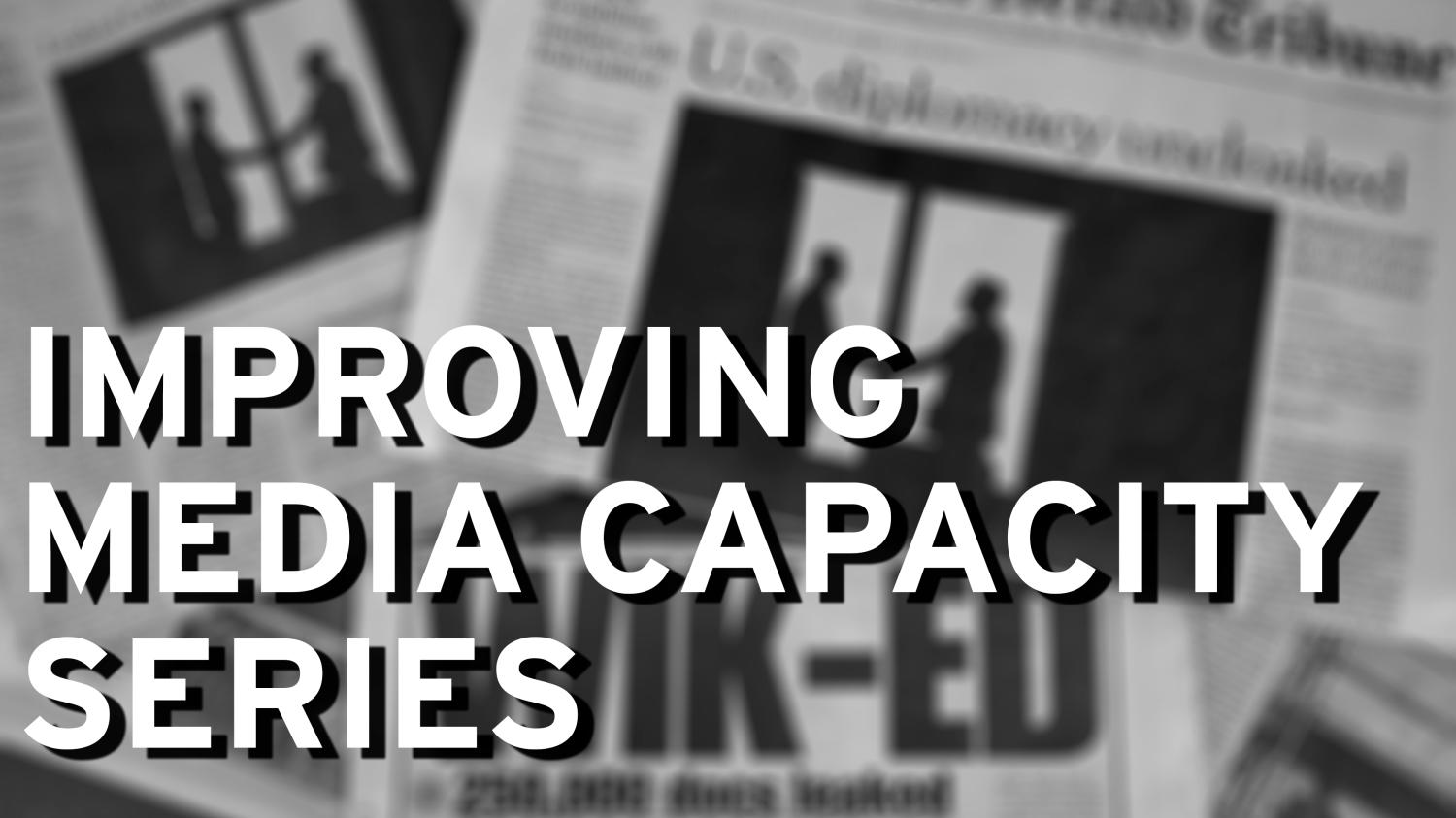Editor’s note: Recent innovations—the Internet, social platforms, and mobile devices—have upended how we receive, consume, share, and interpret the news. In this FixGov series, experts weigh in on the challenges facing the industry and discuss possible ways to enhance news coverage and improve media capacity. On May 19, senior fellow E.J. Dionne will convene a panel of top experts and practitioners to discuss how to fix the problems facing America’s Fourth Estate.
One of the biggest challenges to the health of American democracy is the collapse of the newspaper business model. Like so many other things, advertising, once the backbone of the newspaper business, has moved to the Internet. The result? In the past decade newspapers and reporting jobs have been disappearing at an alarming rate, especially in small and medium media markets. What will take their place is of critical importance. Democracy simply doesn’t work very well without a free press covering government and holding it accountable.
To get a sense of the magnitude of the problem, have a look at the following chart from the Newspaper Association of America. It shows a dramatic slide in newspaper advertising revenue in the 21st century.

With that kind of revenue loss, the next graphic from the Pew Research Center on Journalism and the Media comes as no surprise. It shows a steady decline in the number of full time news room jobs to the lowest level since 1978 when the American Society of Newspaper Editors started to count them.

This week Fixgov has decided to ask a group of experienced journalists to explore the collapse of old journalism and the birth of a new journalism. For instance: How has the shift to online news changed the quality and quantity of news coverage? Who is proving resilient in this tough market and why? Has the creation of online-only media outlets been good for democracy? Has state and local government suffered more from the decline of traditional press than national government? Can industry improve bottom lines without sacrificing quality?
Whether we like it or not, technology transforms society. And democratic societies need watchdogs. We’ve lined up a thoughtful series in the tradition of Thomas Jefferson who once said: “… were it left to me to decide whether we should have a government without newspapers or newspapers without a government, I should not hesitate a moment to prefer the latter.”
The Brookings Institution is committed to quality, independence, and impact.
We are supported by a diverse array of funders. In line with our values and policies, each Brookings publication represents the sole views of its author(s).





Commentary
Improving media capacity: A series on the future of news coverage
May 12, 2015